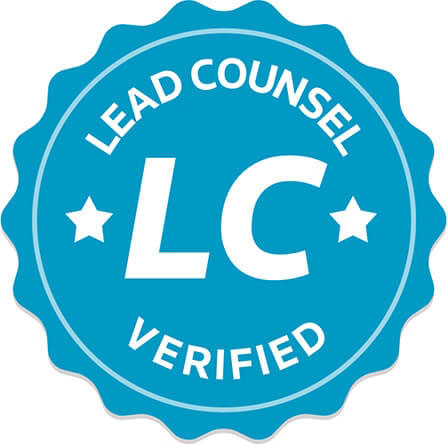FORT WORTH, DALLAS ASSAULT ATTORNEYS
THEY WRITE IT - WE FIGHT IT!

An assault ticket, also known as an assault by physical or provocative contact or simple assault, is a class C misdemeanor that is filed in a municipal or justice of the peace court. Under Texas law, you can be charged with a class c assault if you intentionally or knowingly cause physical contact with another person when such contact can be regarded as offensive or provocative. You can also be charged with class c assault if you threaten another with imminent bodily injury. It is important to understand that the law does not require the victim to have been severely injured or to have even felt pain; rather, any contact that is deemed to have either been offensive, like a poke or a push, or provocative, such as touching a buttock. It is also not necessary that you make physical contact with the alleged victim; rather, coming into contact with something the alleged victim is holding can be considered an assault. Most assaults we see result from domestic disputes, bar fights or neighbor disputes.
Simple assault charges are Class C misdemeanors with a punishment range of up to a $500 fine and no jail time. It is a mistake, however, to think that a simple assault citation is not a serious offense simply because it is a class C misdemeanor; even a simple assault conviction on your record can result in serious consequences for the rest of your life. The police or court officials may try to convince you to plead no contest and simply pay the fine, but this would be a dire mistake that will follow you forever. Once a conviction is on your record, there is no way to get the offense off of your record.
If you have an assault charge on your criminal record, even a simple assault, it will be difficult for you to get or keep a job as most employers do criminal background checks on new and existing employees. You may also have trouble getting or keeping housing. In this day and age, most people who are deemed to have a “history of violence” are not employable and are deemed to be undesirable neighbors. A conviction for a class C assault may be used to enhance a later assault charge making what may seem like a minor offense a serious criminal matter. Finally, a conviction for a class C misdemeanor may be used against you in family law proceedings.
When you consider the potential financial harm and damage to your reputation that can come with a class C assault, you owe it to your family and your future to contact the criminal defense attorneys at Hawkins & Walker, PC.
KNOWLEDGE CENTER
If you are accused of assault on a family member, even a class c assault, you face even more severe consequences including losing the right to own or possess a firearm, immigration issues for non-citizens, and difficulty obtaining state-issued licenses. This may cause you to lose your job if you are required to carry a weapon, prevent you from hunting or impair your ability to defend yourself and your family in the future.
It is important to understand that Texas law has a comprehensive list of relationships that are considered “family members” in the context of assault charges, even relationships that are not traditionally considered family members. If you have questions about whether the alleged victim in your case is considered a family member, please contact us.
It is not uncommon in a Class C assault that the officer will mail a ticket. In many cases, someone has called 911 but the parties have separated prior to the cops arriving. when this happens, the officer will only hear one side of the story and will usually mail a ticket later because you are not there to be given a ticket in person. This does not invalidate the citation – you still need to do something on the assault charge or a warrant will be issued.
If you left the scene in an attempt to defuse the situation, an officer may contact you to get “your side of the story.” We suggest that you NEVER TALK TO AN OFFICER WITHOUT AN ATTORNEY. When you get a phone call to discuss the incident, it is often from a detective who is reviewing the initial report. Detectives have usually been around longer and may ask questions in a misleading way and/or twist your words. Remember, the police are trying to build a case against you and WILL USE ANYTHING YOU SAY AGAINST YOU IF THE CASE GOES TO TRIAL.
If an officer calls to discuss your assault charge, you need to call us and discuss the matter with one of our criminal defense attorneys.
Just because you called 911 does not mean the other party is going to get a ticket or that you cannot get a ticket. When an officer arrives to do an investigation, the officer will typically listen to both sides, if both parties are present, and attempt to determine what happened. If both parties are claiming an assault, the officer may try to determine who was the primary aggressor or may find it easier to issue both sides a citation and let the court sort it out. If you called 911, but then left to defuse the situation, the officer may not have your version of the events making it easy to believe the other side’s story and issue you a ticket.
Officers are quick to write a ticket for class C misdemeanors, perhaps not realizing the dire consequences a cursory investigation may have on your future. This is why you need an experienced criminal defense attorney that can look at the whole picture and provide the best advise on how to proceed to protect you and your record.
After an arrest, you will be brought before a magistrate and most people will plead no contest or guilty. This will result in a conviction and a permanent record of the charge and arrest. We can have this plea set aside; however, we must make this request within 10 days of the plea. If you made a plea in jail, you need to contact us immediately.
The most common question that we get is how will this assault charge affect my future? If your case is dismissed, though either a straight dismissal or after successful completion of probation or deferred disposition, you can apply for an expunction of the charge. You can also apply for expunction if you are acquitted or found not guilty at trial. An expunction is a separate action where the court orders the records related to the charge are to be destroyed. This includes arrest records and reports. After expunction, you can also legally deny that the charge occurred. This is important when completing applications for jobs, schools, housing or financial aid/loans.
Click here for more information on expunctions.
If you have been charged with assault by contact in Fort Worth, Arlington, Dallas or one of the surrounding cities, a criminal defense attorney at Hawkins & Walker is ready to help you with legal advice and representation and help fight to keep your record clean.
Looking for help with a Class C assault? Schedule a Free, Confidential Case Evaluation with one of our award-winning criminal defense attorneys.
If you are facing serious criminal accusations, whether a felony or misdemeanor, state or federal offense, one of our criminal defense lawyers can help you understand your legal options. We are committed to pursuing justice on behalf of all our clients, no matter how difficult or complex your situation may be. We offer completely confidential, cost-free case evaluations to learn more about the specifics of your circumstances.
Call 817.877.3355 or click the contact button below to start fighting your assault charge now.









